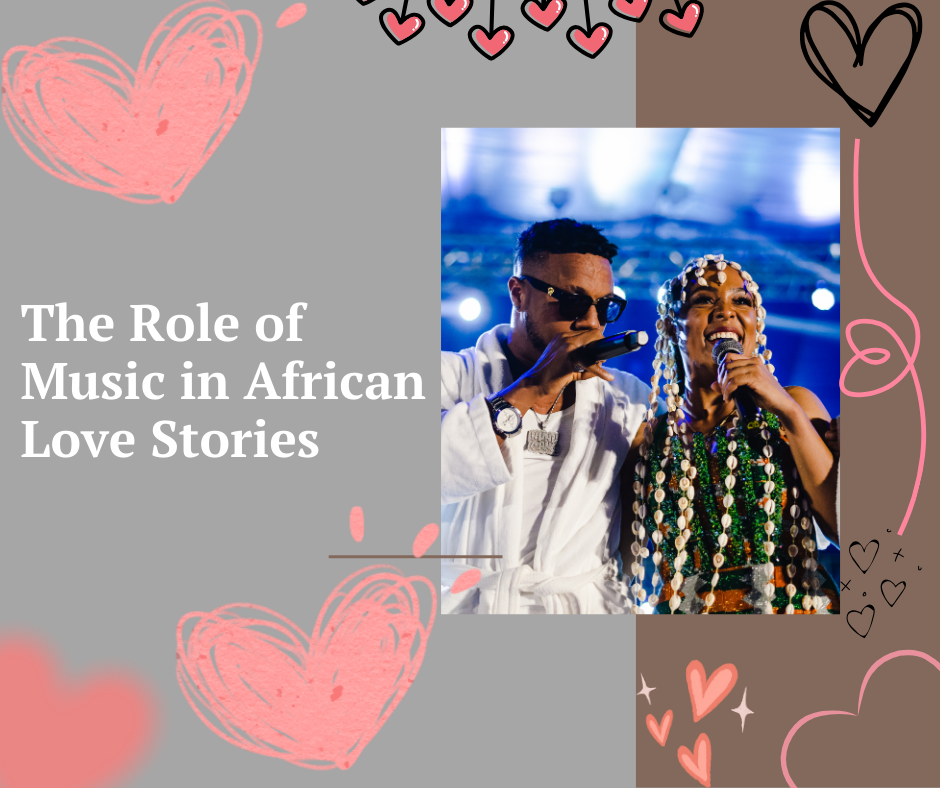1. Expressing Love and Affection
In many African cultures, music is used to express feelings that may be difficult to verbalize. Love songs often communicate admiration, longing, and affection, helping partners express their deepest emotions.
Examples:
Traditional ballads that serenade a lover and praise their beauty and character.
Contemporary Afrobeat songs that celebrate love, attraction, and romance.
Wedding songs that symbolize commitment, devotion, and joy.
---
2. Building Emotional Connection
Music has the unique ability to evoke emotions and create memories. Couples often associate specific songs with significant moments in their relationship, creating a deeper emotional bond.
How This Happens:
A couple's "special song" becomes a symbol of their love story.
Listening to nostalgic love songs can rekindle fond memories.
Dancing together to favorite tracks strengthens intimacy and connection.
---
3. Celebrating Weddings and Engagements
African weddings are vibrant celebrations filled with music, dance, and cultural rituals. Music plays a central role in marking the union of two people, bringing families and communities together in joy.
Key Traditions:
Udu drums in Igbo weddings to welcome the bride.
Mbira music at traditional Zimbabwean weddings.
Afrobeat and Highlife music to energize the dance floor.
---
4. Communicating Courtship and Romance
In the past, and even today in some cultures, music serves as a means of courtship. Serenades, love chants, and poetic lyrics are used to win the heart of a loved one.
Examples:
Zulu men singing traditional love songs, known as isicathamiya, to impress potential partners.
Hausa folk songs, where suitors praise the character and grace of a woman.
Modern African artists creating romantic Afro-pop tracks that capture the essence of love and attraction.
---
5. Healing After Heartbreak
Music also plays a role in healing after the end of a relationship. Heartbreak songs help people process loss, express their pain, and find solace in shared experiences.
Examples:
Melancholic Swahili Taarab music for expressing heartache.
Afrobeat and Afrosoul tracks that discuss love, loss, and moving on.
Congolese Rumba songs reflecting on love's complexities.
---
6. Celebrating Cultural Identity
Music in African love stories is not just about romance—it is also about preserving cultural identity and heritage. Through love songs, artists celebrate their culture, language, and traditions, making love an act of cultural pride.
How This Happens:
Using indigenous languages to express love and desire.
Incorporating traditional instruments and rhythms in modern love songs.
Highlighting cultural values, such as respect, loyalty, and family in romantic lyrics.
---
7. Bridging Modern and Traditional Love
African music bridges the gap between traditional and modern expressions of love. While younger generations embrace Afrobeats and R&B influences, they also respect the deep cultural roots of love songs.
Examples:
Artists like Burna Boy, Simi, and Diamond Platnumz blending modern beats with traditional themes.
Contemporary African love songs featuring ancestral proverbs and cultural symbolism.
Hip-hop and rap songs that incorporate traditional love metaphors.
---
8. Strengthening Long-Distance Relationships
For many African couples separated by migration or work, music becomes a way to stay connected across distances. Shared playlists and love songs can maintain emotional closeness.
How to Use Music for Connection:
Share a playlist of favorite love songs to feel closer.
Dedicate songs to each other through social media.
Listen to the same love song during video calls to create shared moments.
---
Final Thoughts
Music is the heartbeat of African love stories—expressing emotions, preserving traditions, and deepening bonds. Whether it's a traditional serenade or a modern Afrobeats hit, African music continues to celebrate love in all its forms. Embracing the power of music can enrich your romantic experiences and create lasting memories with your partner.
